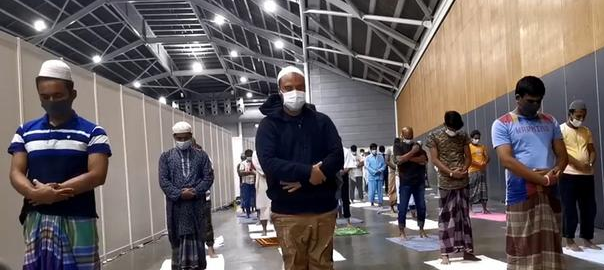Everyone wants to be their most productive self during Ramadan, but it’s hard when your sugar levels are dropping, a headache kicks in or when your brain feels too sluggish to even manage a small test. Your diet and lifestyle play a huge role in influencing your energy levels during Ramadan. You need to master these two to make sure you don’t burn out before the end of the month. Here are some helpful tips to make sure you don’t lose valuable time this Ramadan:
Eat wisely at Sehri
Many of us zombie walk to sehri and often end up shoveling random food items into our mouth. However, it might be better to take a moment and think about what you’re eating. Consumption of slow-digesting foods at sehri is a more pragmatic approach to make sure you feel full and energized during most part of the day. A bowl of oatmeal with nuts, or a whole grain cereal might be a better option, along with beans, nuts, seeds, and vegetables like cabbage, cauliflower, and okra.
Choose Water, not Caffeine
It’s probably better to choose water over caffeine when it comes to choosing a beverage. Not only because your water intake drops during Ramadan but also because for each cup of coffee (100 mg caffeine) your body needs about 3 cups of water to compensate for the water loss that occurs due to coffee’s diuretic effect. Also, Coffee causes a significant loss of nutrients, especially magnesium, potassium, calcium, zinc, and B vitamins.
Sleep well
It might be tempting to stay up all night and sleep only after sehri but this schedule might do more harm than good.
Avoid greasy foods at Iftar
No rocket science here. Our love of fried foods and Ramadan knows no bounds, but it might be a better option to avoid them as they are heavy, and give nothing but empty calories.
Exercise
People who exercise regularly have a reduced risk of coronary heart disease, and a 50% reduction in chances of diabetes and colon cancer. Fasting in Ramadan is helpful further because it helps in clearing a sluggish mind. The hippocampus (the part of the brain responsible for emotion, memory, and the autonomic nervous system) is stimulated during exercise, increasing memory retention and strengthening mental clarity. Even light exercises may be helpful in keeping you active throughout the day.
Find an activity
Chances are you’re going to end up thinking about food or sleeping all day if you don’t find a useful activity to focus on.
Work on your breathing
According to expert advice, there are some special breathing techniques which you can use to get rid of fatigue. It’s remarkable how simple breathing can leave you feeling fresh and energized. The routine involves: breathing slower, breathing deliberately through the nose, and breathing deeply.






